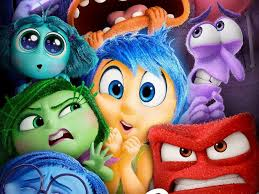MTSU's Department of Philosophy and Religious Studies is hosting its first Applied Philosophy Lyceum of the academic year on Friday, September 27, 2024, at 5:00 PM in COE 164. Catered reception following.
Looking forward to introducing our Lyceum speaker this afternoon, assuming we're not flooded out…
I'm delighted today to introduce Dr. Mariana Alessandri, professor of philosophy at University of Texas-Rio Grande Valley and (it is possibly relevant to note) a New Yorker.
I do understand that when she writes "Against Cheerfulness," she means forced and phony cheer, the "American way [that] borders on psychosis." I don't think she's against the spontaneous and natural sort of joi'e de vivre that even the gloomiest of Guses can occasionally enjoy. No less committed a Scrooge than Schopenhauer, after all, said
"Cheerfulness is a direct and immediate gain, — the very coin, as it were, of happiness… for it alone makes us immediately happy in the present moment, and that is the highest blessing for beings like us, whose existence is but an infinitesimal moment between two eternities. To secure and promote this feeling of cheerfulness should be the supreme aim of all our endeavors after happiness." -The Wisdom of Life
Schopenhauer--the guy who said “What disturbs and depresses young people is the hunt for happiness on the firm assumption that it must be met with in life"-- said that!
Dr. Alessandri has written widely and in public, contributing (according to its editor) some of the New York Times philosophy series The Stone's most impressive essays. One of those, in 2019, found the late Fred Rogers' dark side: "It's A Terrible Day in the Neighborhood and That's Okay" concludes:
"If we are convinced by Rogers' and Aristotle's claim that feelings are not wrong and that "what's mentionable is manageable," we should begin mentioning our own sad, lonely and disappointed feelings. In doing so, we would show children — and our grown-up selves — how to appropriately manage them."
Dr. Alessandri introduces herself, on her website, this way:
"I'm a teacher, philosopher, accidental activist, and mother, but if I could be a superhero, my cape would read: 'Defender of Dark Moods.'
As long as I live in a world where people apologize for crying in public, I will write books and essays on why complaining is good, why [fake] cheerfulness isn't, and why Mister Rogers was right that "everyone has lots of ways of feeling and all of those feelings are fine." You can find [her] my work at The New York Times, New Philosopher, Womankind, [Aeon,] and other places."
[And] Check out what drives [her] nuts on Instagram and in her newsletter, In the Cave.
Speaking myself as a mostly-happy melioristic pragmatic pluralist, and despite her reluctance during the Q-&-A in Boston to endorse the hopeful positivity of meliorism, I was gratified by Dr. Alessandri's inscription in my copy of her book: "Dear Phil, I think the pragmatists and existentialists have a lot of common ground!"
And so we have.
Please join me in welcoming
DR. MARIANA ALESSANDRI
Professor, University of Texas Rio Grande Valley
“THE UPSIDE OF ANXIETY: Kierkegaard on feeling better about feeling bad”
Is anxiety best described as a lack of faith, an error in reasoning, or a brain disease/chemical imbalance? Do any of our contemporary definitions or descriptions of anxiety help us feel better about it? In 1844, the “congenitally anxious” philosopher Søren Kierkegaard posited that the more anxious a civilization is, the more profound the culture. Can Kierkegaard’s defense of anxiety help us, in 2024, to feel better about feeling bad?
Join Dr. Mariana Alessandri, Professor in the Department of Philosophy at the University of Texas Rio Grande Valley, and author of Night Vision: Seeing Ourselves Through Dark Moods, as she talks about the mental illness that 1 in 3 college students suffers from.
* This event is free and open to the public. A reception will follow the discussion.




No comments:
Post a Comment